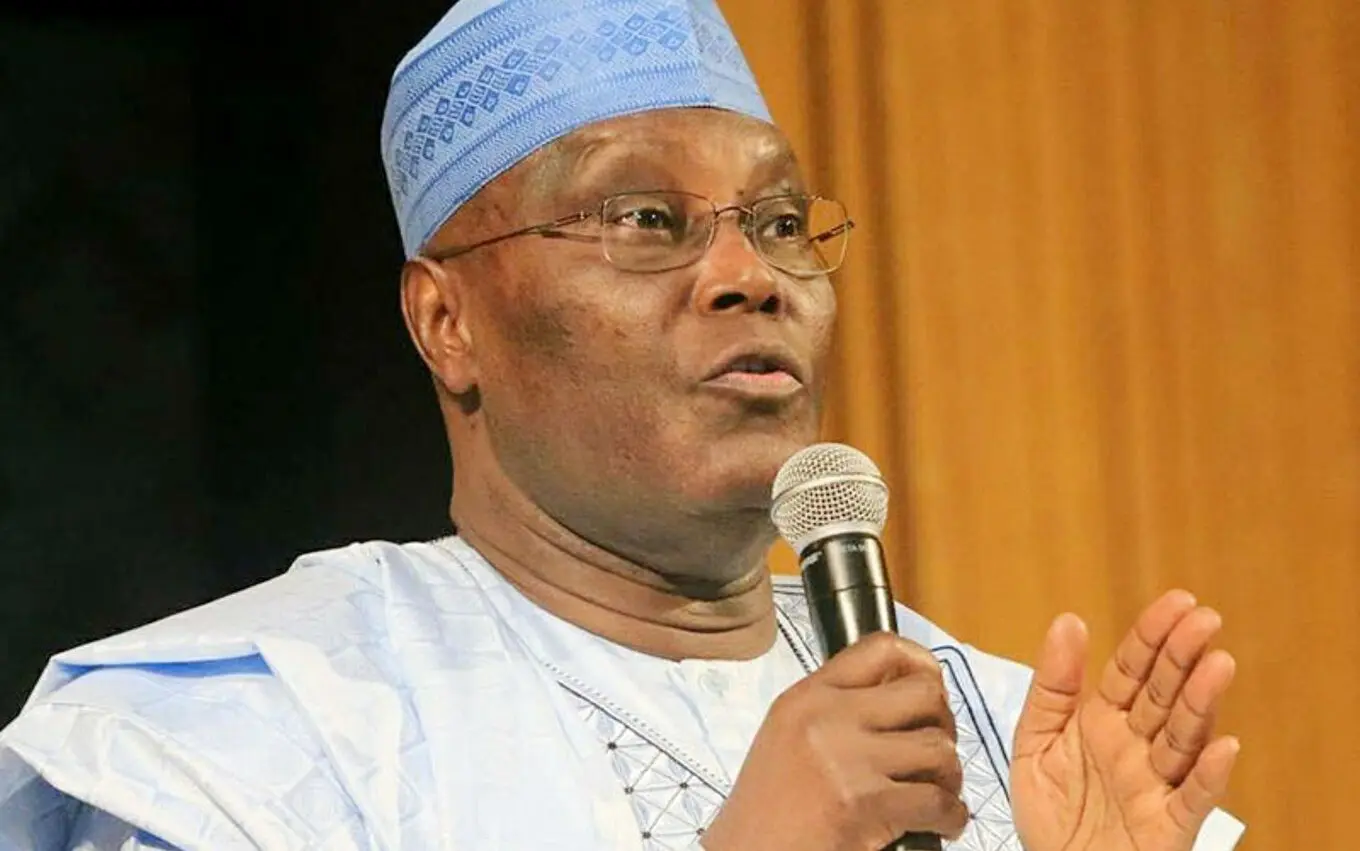Alhaji Atiku Abubakar, the Peoples Democratic Party’s (PDP) presidential candidate, charged on Tuesday that the Independent National Electoral Commission (INEC) interfered with the proper presentation of the case he filed to contest the results of the 2023 election.
Although Atiku paid over N6 million for the certification of exhibits he intended to present in evidence before the Presidential Election Petition Court, PEPC, located in Abuja, he bemoaned the fact that the Commission had yet to provide him with the materials he had asked for.
Therefore, the five-member panel headed by Justice Haruna Tsammani was convinced by his client’s attorney, Mr. Eyitayo Jegede, SAN, to postpone further proceedings on the case his client filed to invalidate President Bola Tinubu’s election until Wednesday.
Jegede, SAN, had attempted to present the election results from 10 out of the 21 Local Government Areas, or LGAs, in Kogi State as evidence before the court during the petition’s resumed proceedings.
Although Atiku’s attorney claimed that his client requested voting materials from every LGA in the state, he claimed that only Ankpa, Dekina, Idah, Ofu, Olamaboro, Yagba East, Yagba West, Kabba-Bunu, Igalamela-Odolu, and Kogi results were given to him.
He called the court’s attention to the fact that all of the required papers were previously listed in the schedule of documents that Atiku and the PDP claimed they would depend on to support their joint case opposing President Tinubu of the APC’s statement that he would serve as the party’s presidential nominee.
The Justice Tsammani-led panel emphasized that even though the petitioners sought to tender the exhibits they had access to from Kogi state while waiting for INEC to release additional documents, the court’s records would not be delayed if such sensitive exhibits were admitted in evidence piecemeal.
The former Vice President’s attorney informed the panel that his client had served subpoenas on senior INEC officials to compel them to present some of the requested electoral documents to the court while asking for an adjournment.
He explained that the request for an adjournment would allow his team to approach the Commission again and persuade it to take the appropriate action.
In the meantime, none of the case’s respondents objected to the request to postpone the matter until Wednesday.
In the case designated CA/PEPC/05/2023, INEC, President Tinubu, and the All Progressives Congress, APC, are listed as respondents.
Atiku, who finished second in the presidential election, insisted in a joint petition he filed with the PDP that Tinubu’s declaration as the winner was “invalid by reason of non-compliance with the provisions of the Electoral Act, 2022.”
Tinubu, who has since been sworn in as President, was not “duly elected by a majority of the petitioners,” according to the petitioners.
They informed the court that President Tinubu, “was at the time of the election, not qualified to contest”.
Atiku and his party argued in another document they submitted to the court that Tinubu had “demonstrated inconsistency as to his actual date of birth, secondary schools he attended (Government College Ibadan); his State of origin, gender, and actual name; certificates evidencing Universities attended (Chicago State University).”
“The purported degree Certificate of the 2nd Respondent allegedly acquired at the Chicago State University did not belong to him but to a female (F) described as “F” in the Certificate bearing the name Bola Tinubu.
“The 2nd Respondent did not disclose to the 1st Respondent (INEC) his voluntary acquisition of the citizenship of the Republic of Guinea with Guinean Passport No. D00001551, in addition to his Nigerian citizenship. The 2nd Respondent is hereby given the notice to produce the original copies of his said two passports,” Atiku added.
The APC candidate, according to the petitioners, “is constitutionally disabled from contesting for the office of President of the Federal Republic of Nigeria” and did not meet the requirements of the constitution.
While also requesting the removal of the Certificate of Return that President Tinubu received from INEC, Atiku is asking the court, among other things, to declare him the legitimate winner of the presidential election.
Even though they presented over 338 exhibits in evidence, the petitioners have already called 10 witnesses who gave testimony before the court.
Certified copies of the presidential election results from the 36 states of the federation and the Federal Capital Territory, Abuja, were among the documents the petitioners said they would present to the court.
Atiku declared he would present a total of 100 witnesses to testify in front of the court in addition to the sensitive documents utilized for the election, Forms EC8E, EC8D(a), Form EC8D, Form EC-9, and Form EC-40G, which he handed in evidence.
While the court also admitted documents relating to Permanent Voters Cards, or PVCs, and designated them as Exhibits PH, PH1 – PH 36, extracts from BVAS machines used in the 36 states and the FCT were not.
Despite the fact that all of the respondents—including INEC—contested the admissibility of the exhibits, they nonetheless informed the court that they would provide justifications for their objections in their final written response.






